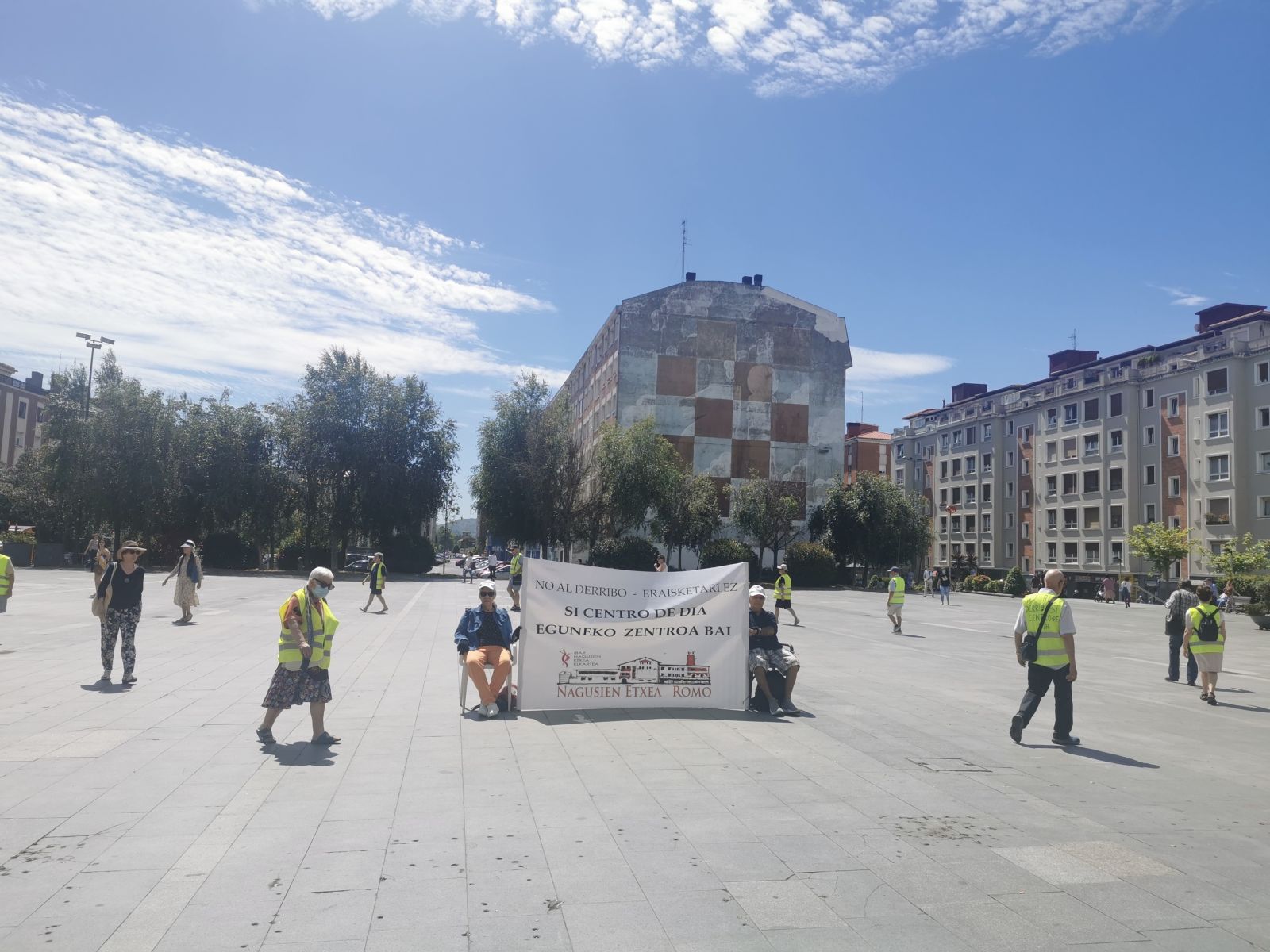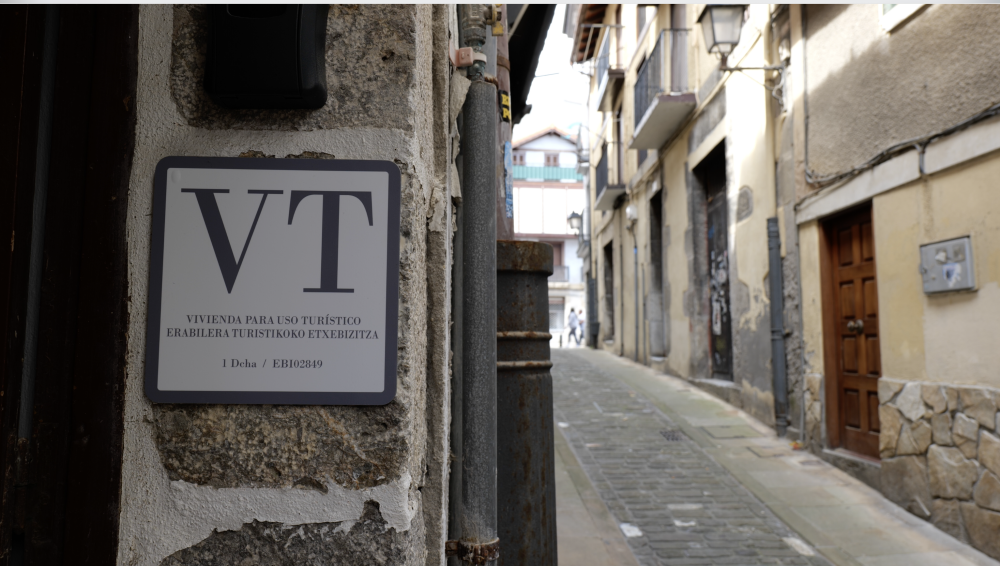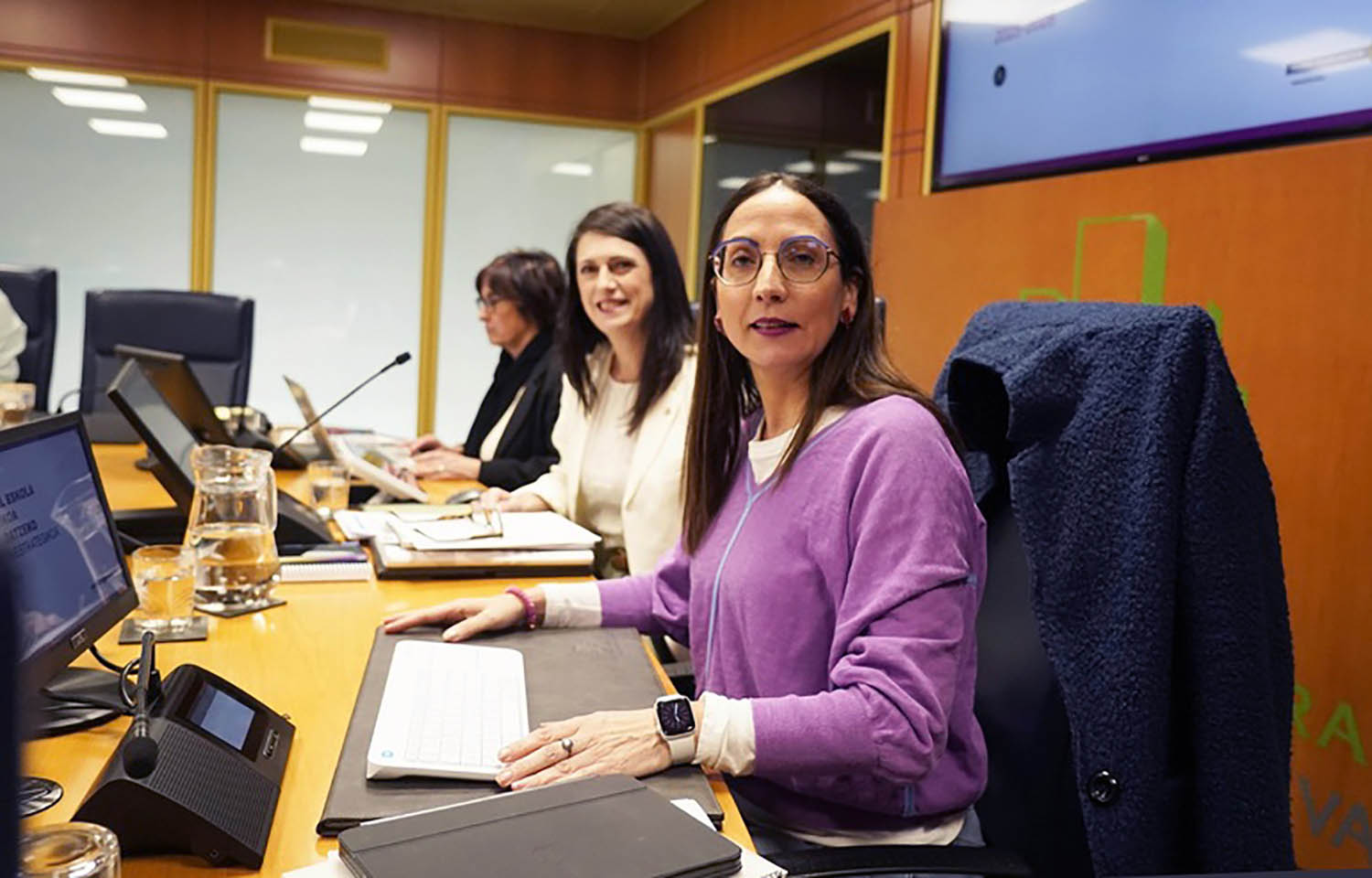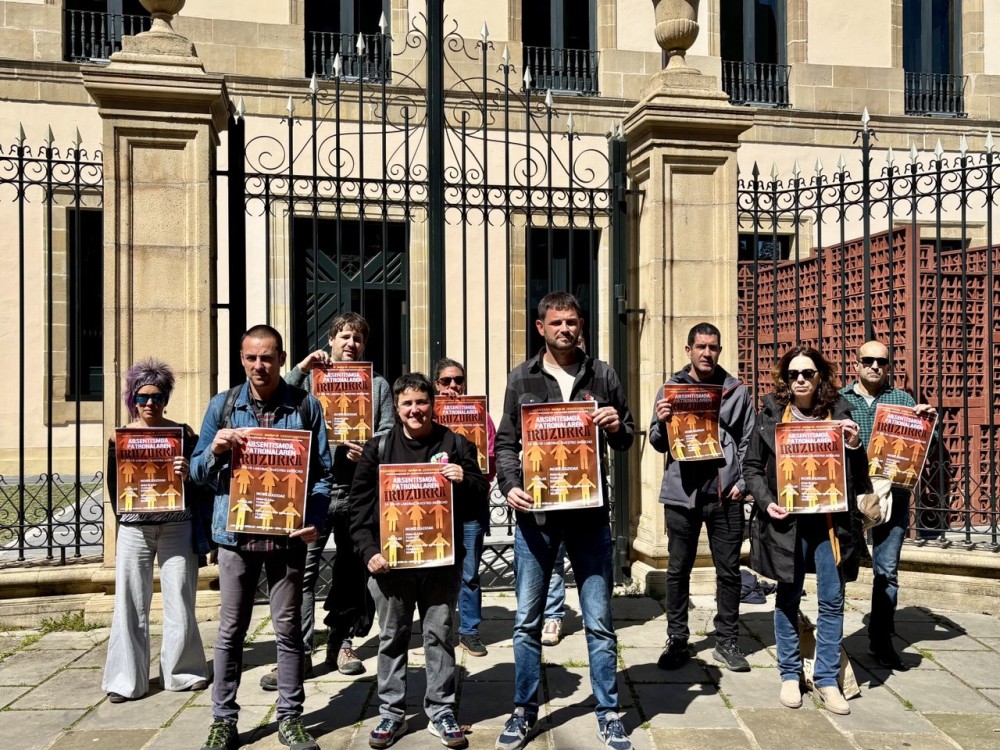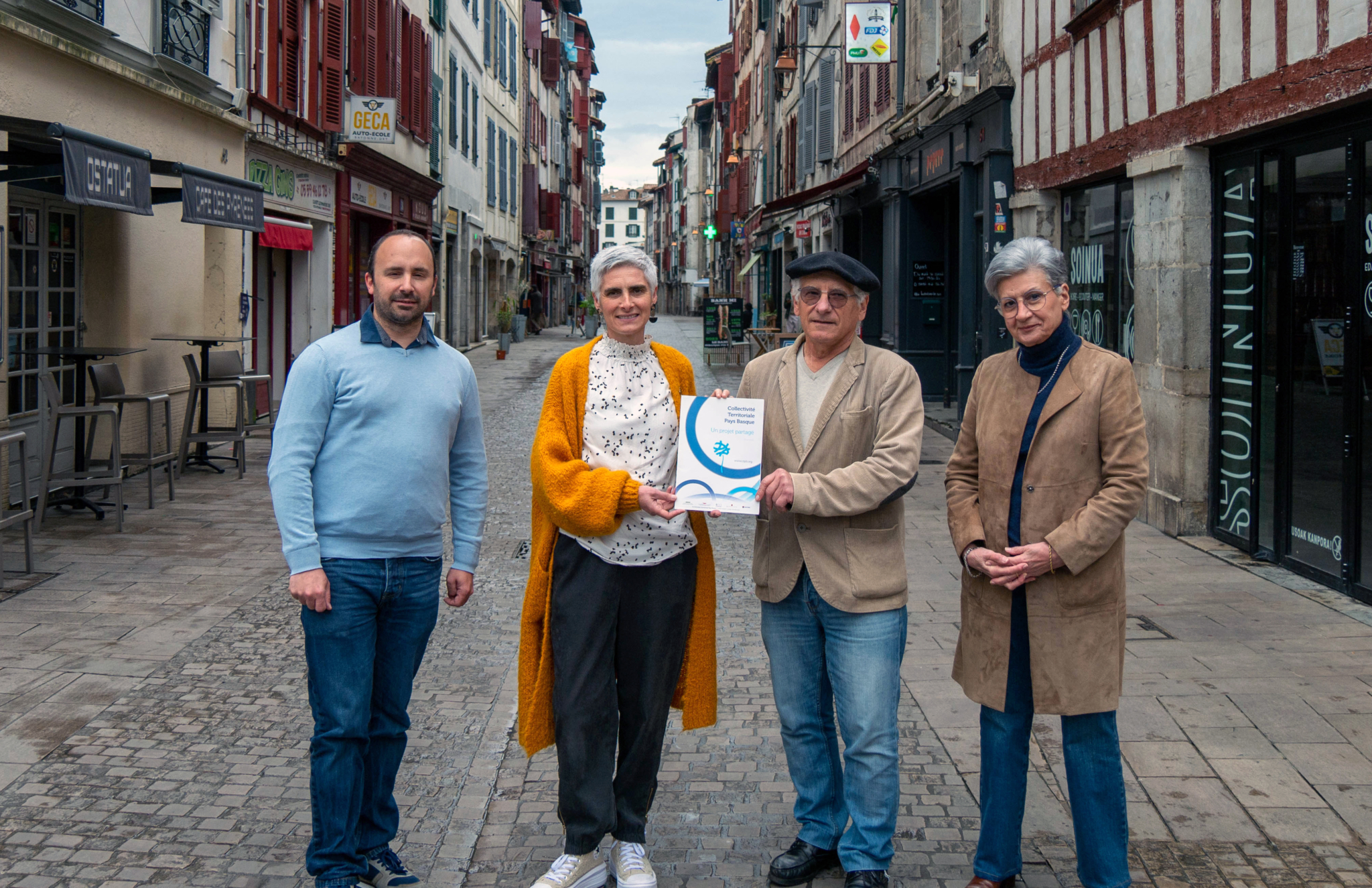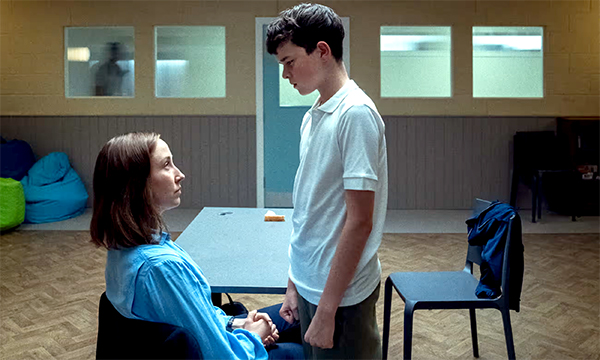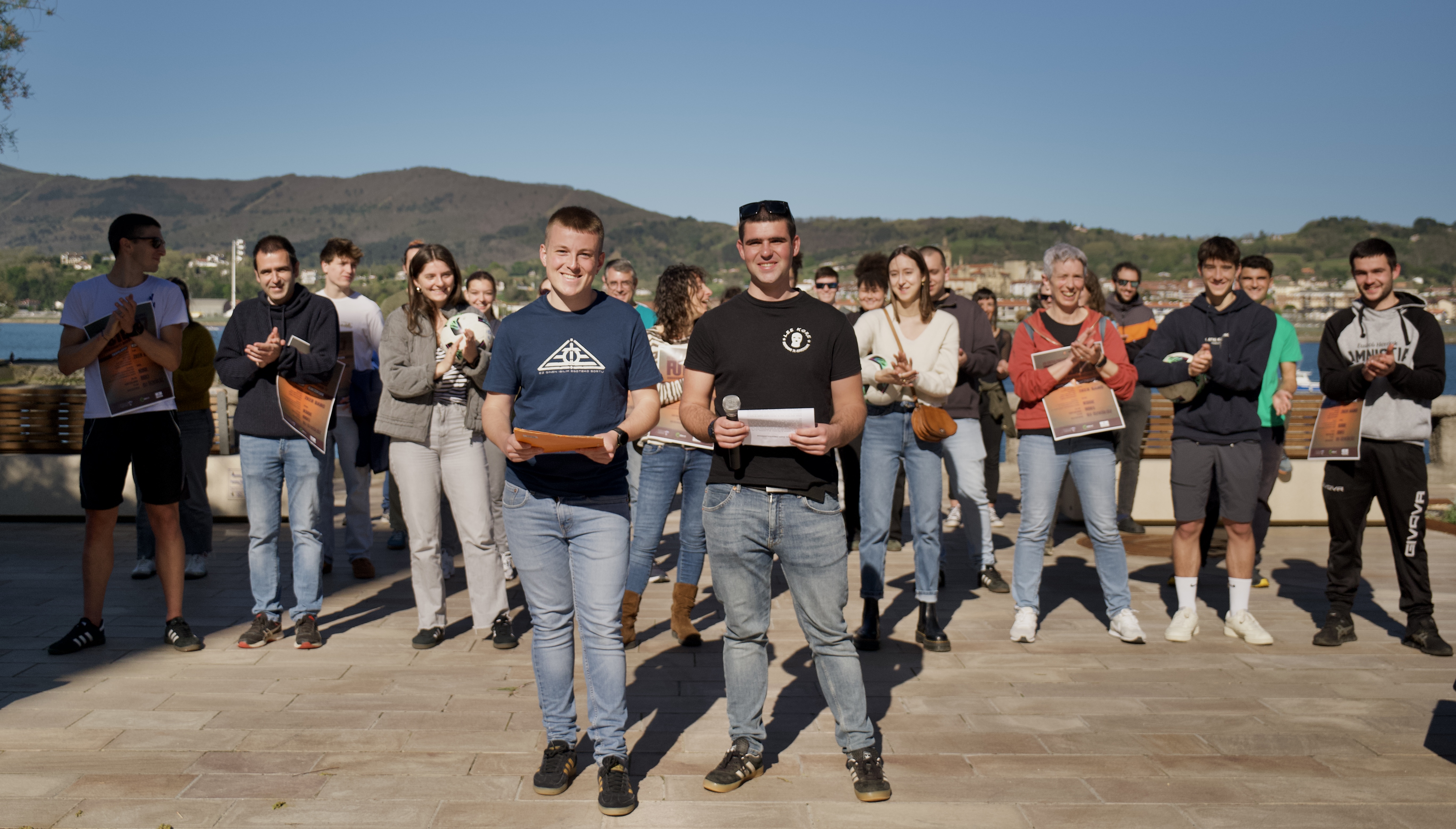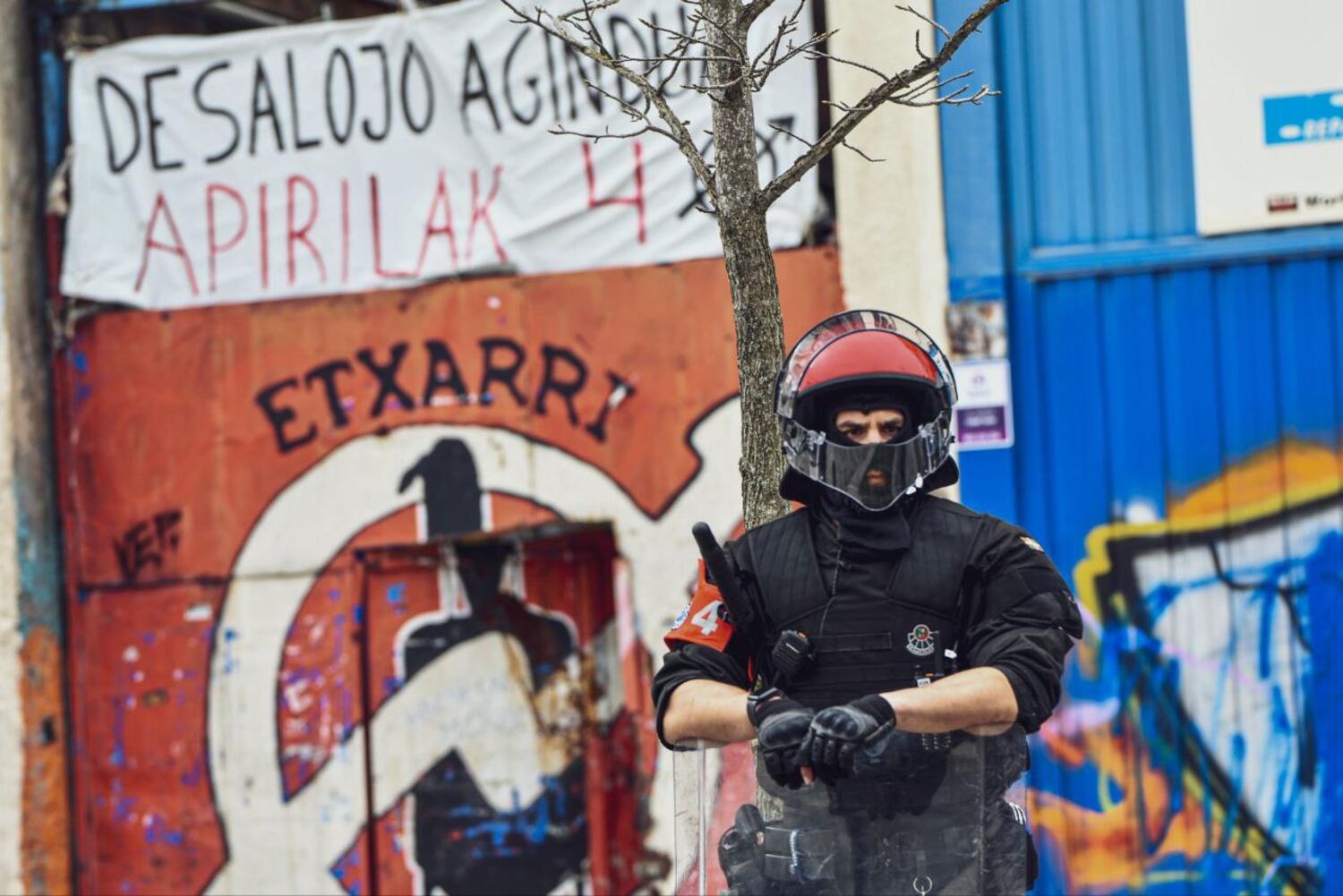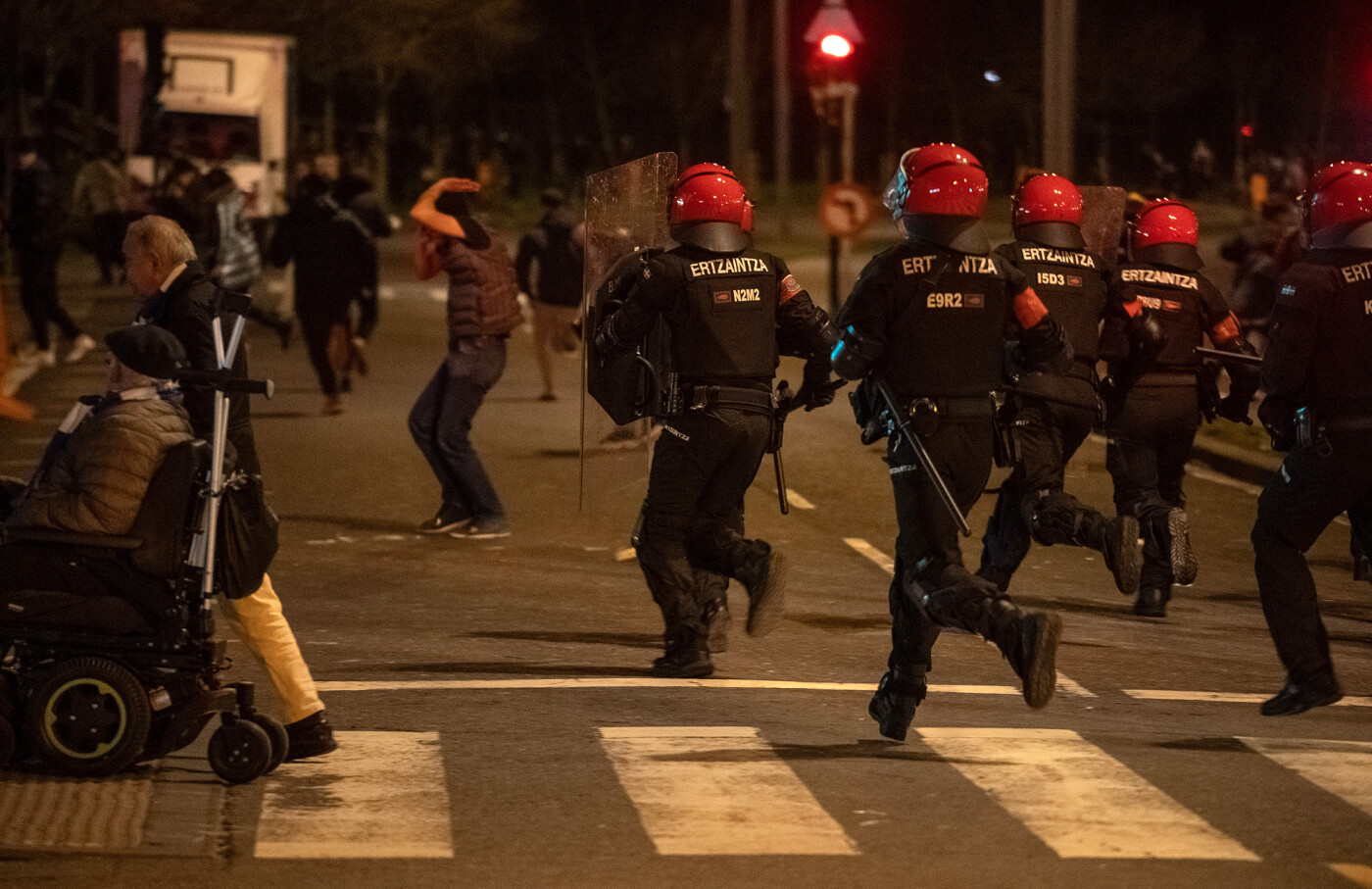"They believe that institutions have to give us the elderly doing everything and we don't feel valued."
- Mari Carmen Pineda Heras, Pako Rama Merino and Rafael Martín Rodríguez “Txikerra” are members of the Casa de Valles Mayor de Roma (Getxo). On 24 June they are threatened with being expelled from the building, as the Getxo City Hall and the Bizkaia Foral Council want to demolish the building to give another use to what is to be built afterwards. The use of the Casa de Cultura RKE Romo has been offered as an alternative, but some members of the Casa de Mayor consider that this space does not meet their needs, want to stay in the Casa de Mayor. Claiming this, on 22 June the Dismantling Platform has convened a demonstration. On the eve of the appointed day, Garazi Basterretxea makes an interview.

Mari Carmen Pineda Heras, Pako Rama Merino and Rafael Martínez Rodríguez “Txikerra” are members of the Casa de Valles Mayor de Roma (Getxo). The House of the Elders was built in 1935 by a religious association, but later, due to the pressure of the people, it was acquired by the City Hall (50% by the Provincial Council of Bizkaia). But in 2018 the City Hall invited its workers to come to the RKE Romo House of Culture, announcing the steps that followed: the closure and demolition of the building. The city had other plans for the building: first he said he was going to build public housing, and now an intergenerational coexistence center, a residence for seniors in the 2nd and 3rd grades and forty apartments for children under 35.
Until 2013 the City Hall undertook to replenish the building and to move during the construction to the new house of culture for later return. But over these years the plans have been modified and the members of the House of the Elders have lived a race of obstacles: collected signatures have been carried out (for example, in 2016 they had to make a collection of signatures on the street to ask for the members to decide the future of the building, because at that moment the meeting of the House of the Elders did not allow them to do it inside), demonstrations, conferences, reports, meetings …
They are threatening to be expelled from the building on 24 June, although on 8 May a popular consultation was held in the neighbourhood and 98% of the 1,500 voted against the demolition. In addition, a few months ago, 4,000 signatures were submitted in favour of the maintenance of the building. It is not the first time they have received threats, in May 2018 they closed 20 days and managed to keep the space open. Since then, the House of the Elders continues to function thanks to the volunteers who work in it and the partners who each day inhabit this space.
Paco, Mari Carmen and Rafa, you are part of the day-to-day life of the House of the Elders and insist on the importance of calling, “The House of the Elders”, your home. What does this house do?
Pako branch: I think what makes this place our home are the people. Because they're all volunteers and they come because they want, there's a certain closeness between people. People come here because they find people like them, they feel loved, accepted as people, not just as a number or as an older person.
Rafa Martín: For example, there were two men sitting at the entrance and they were there all day staring at the people. They were talking if somebody was sitting next to him, but there they were, quite simply, comfortable in his house.
Branch: One of them was brought by the son in the morning and at the time of closing, he came to look for him. I wanted to stay here until the last moment.
Mari Carmen Pineda: In the House of the Elders we are with people, we have coffee and we do favors each other. My mother has come here, my children would come to kindergarten and now I come. When my mother came, when I got out of work at night, I was looking for her and she was a while away. On Sundays I also came to play the cards. When I was working I came less, but when I retired I came back again, I don't like to be at home all day, I like to come here and talk to people.

Martin: When they opened the RKE, many people were called from the City Hall saying that the House of the Elders was closed. When someone called here, the call was diverted to the city hall and they were called the same thing. They made a boycott campaign: they introduced the role of tearing the bathrooms, the people who closed the door latch was closed to think from the outside… Often the bosses are manipulated from the institutions, but when they raise their voices and say “this is what I want”, they are told not if it does not come with what the power wants. The PSE campaigned against the demolition, but now they have met with the PNV and are in favour, how can that be? How can this have legitimacy?
Pineda: Many older people have stayed at home and after the pandemic, much worse. A lot of people don't go to the RKE because they don't have room to be on that third floor. I think when they founded the RKE they didn't remember us. They put us in it like sheep, go those who fit and those who can come, and the rest stay in their homes. What I want to defend is that the House of the Elders, that people can keep coming here, and if we can have a day center by our side, much better, because this is not a day center, the House of the Elders and the Day Center are different concepts.
Why do you think it's important for older people to feel that this is their home?
Martin: There is one very important thing. As we turn our years, we lose family and friends. Unwanted loneliness is not foolishness, it is a very serious thing, that people come here and that they have a group is fundamental.
Pineda: I've only been in the pandemic at home for a few months. The kids helped me a lot by bringing what I needed home, making video calls with my kids because they live outside, but if I used to not be alone. I wanted to come here to be with the people here. After the pandemic, we need broad and open spaces, adequate ventilation, for which the RKE is not adequate.
Rafael Martín: "Unwanted loneliness is not foolishness, it is a very serious thing, it is essential that people come here and have their group"
Martin: The doorkeeper to open the windows of the RKE must open them with a card, the access doors are the same and the spaces are very small. In addition, the City Hall has organized it according to the logic of the services: if they organize an activity for 30 people and 60 register, half will be left out and nothing will happen. We are trying to ensure a place for all people. In addition, through lectures and courses we deal with themes of interest to the elderly: unwanted loneliness, sexualities of the elderly, fraternity, the mistreatment suffered by the elderly, nursing homes, etc., to reflect and be critical.
And why do you think you want the City Hall to derail the House of the Elders and you to go to the RKE?
Branch: The PNV has been trying for years to demolish this building with different projects. Its goal is to fill Getxo with large buildings, symbol of modernity. They don't get ashamed, they eliminate a lot of history and memory, but they don't care.
Martin: They propose different things, and all they have in common is to demolish the building and build a new one, because what gives money is that. Every time such a work is carried out, the party gets “supposedly” money, and I think it is essential here. Let us remember Maragall in 2005 in the Catalan parliament.
Pineda: It will now be the Member who manages the space. Will the municipality be remembered? There will be people from all over Bizkaia, not a project for the people of Getxo.
Martin: They demolished the schools of Santa Eugenia, tried twice to demolish the Cheap Houses, despite being a historical heritage that reflects the evolution of the neighborhood, especially of the people of the town. They have no sensitivity to it. The architects who won the project for the confirmation of the Provincial Council said in 2014 in Deia that the demolition of what is worth does not make sense. In 2015, we presented a project developed by the Official College of Basque Navarro Architects, in which it was said that the Cheap Houses, the Elderly House, the Euskaltegi and the Church are an urban nucleus of the neighborhood and that they should be replenished rather than demolished, since their structure is in good condition and they are the heritage of the people. The municipal authorities will know the theory, but then they do not apply it in practice.
Pako branch: "You'll erase a lot of history and memory, but it doesn't matter to you."
Pineda: I, too, believe that this is speculation. We sent them the proposal to build this headquarters in the Getxo II building and they said they did not pick it up.
Martin: I have also been told that the report by the Architects' Association did not come to them. I myself presented it to the town planning department, to the city council, and when it was the PGOU review.
What is the House of the Elders like inside? What actions do you have and how is space organized?
Branch: There are free access spaces: gym, patio, TV room, reading room. The large room below is versatile, different activities are organized: gymnastics, taichi, theater, bingo, cinema, that is, things that require a great space. No more people can be included in these hours. People organize themselves in spaces, move like at home, if there's no activity, it can be anywhere.
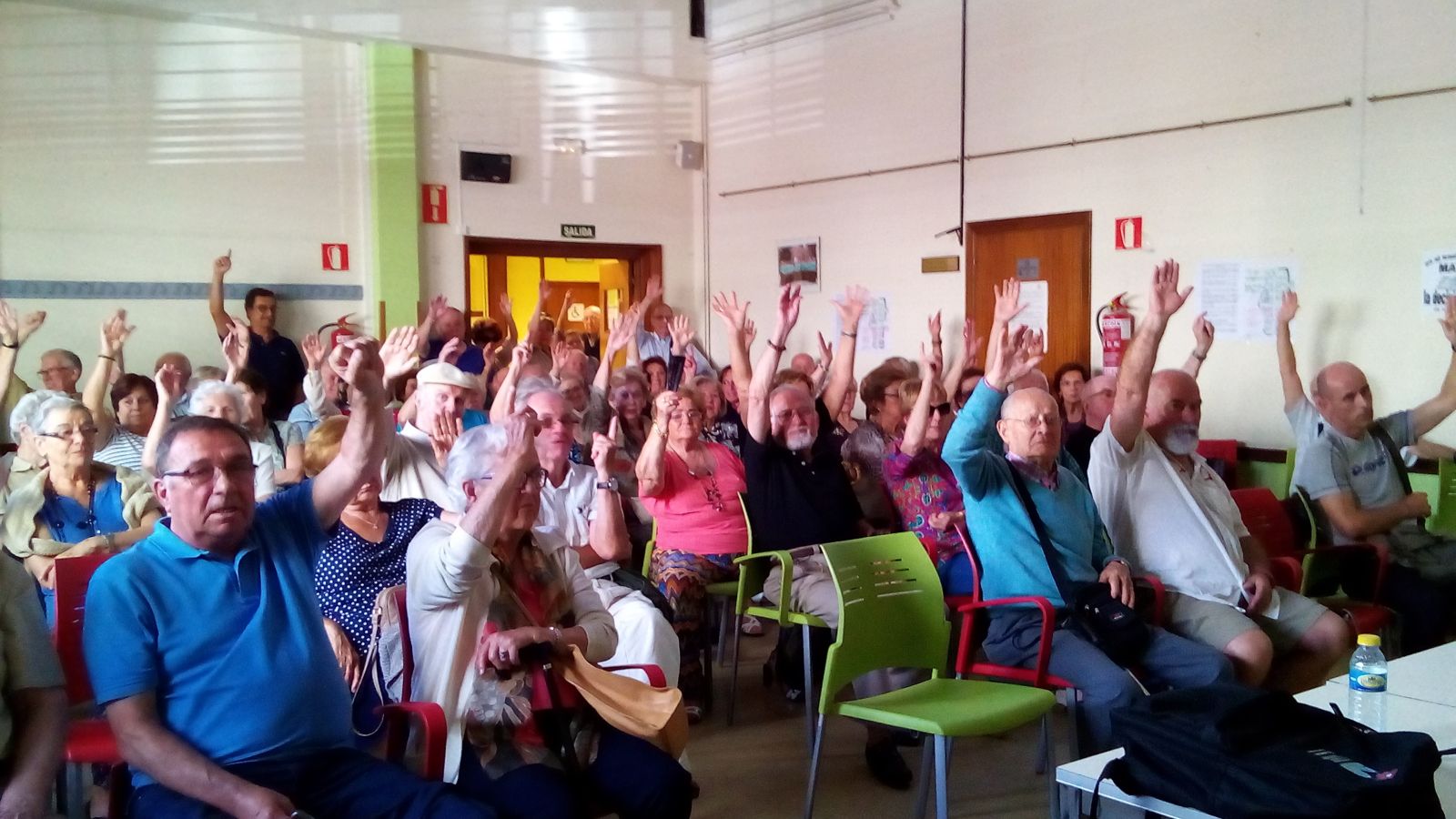
Martin: Older people's domestic activities are organised by the Board of Directors, taking into account the proposals of the partners. It is very important for the elderly that they decide what action they are going to take, which makes them feel important, part of an active group and not just empty numbers. From the institutions we are offered to the largest activities in an impersonal way, they do not let us design and organize ourselves, they believe that they have to give us all facts and we do not feel valued.
And how can you do that in the RKE? Do you see that all of this is possible in the new building?
Martin: Services such as hair paindegia, podiatrist and physiotherapy are now in the RKE. They were proposed to work in 2018, even if they had a contract with us until December. They then told us that they couldn't double the services so we wouldn't hire any other professional, and they left us unable to offer it. Many bosses say the RKE is a cold space, like a building full of offices, and it doesn't have the essence of ours.
Rafael Martín: "It is very important for the elderly to decide what action they will take, which makes them feel important, part of an active group and not just empty numbers"
Branch: The last type of gymnastics that is done here a day is for people with reduced mobility, some come in a wheelchair, others with help... To reach the RKE they have to take the elevator and if one day it does not work they will not be able to enter. They insist on and publish on media that about 30 percent of Getxo's population is over 60 years old, but these people reduce the spaces for action. In the Elderly House there are spaces for activities and then you can go to the common classrooms, where you decide what to do. For me, the most important thing in this building is the feeling of belonging, this is our house.
The City Hall wants to boost the intergenerational relations of this new project. For a while the young people of Gaztetxe remained in the adjoining building and were evicted. What relationship did they have with them?
Martin: When we had the young people at the Gaztetxe, we got together many times. They were coming here, to the patio, to the bar, to participate in conferences, to the carnival dance, to be in the reading room. Coexistence was very nice, they were our partners. At the close of 2018 they were with us, played the guitar, sang, prepared the marmitako and prepared other meals…
Branch: It lasted little because they were knocked down and the relationship between generations ended. But here that relationship can be given every day, because we have this open. We are the ones who manage the space and believe that this place should be for the use of the people of Rome. The Women's Assembly of Itzubaltzeta held here the feminist days, and this year the food of the women of Rome has been celebrated here. Romo Cantárico, ecclesiastical…. But the City Hall's goal is to make the intergenerational relationship according to the European models, and that's what they've sold in Europe and that's why they've given them the amount they've given them. We, however, do not see clearly the relationship that will be established between the elderly dependent on the 2nd and 3rd grades and the young people under 35 years of age.
And what clues has this place left you in the bodies? What do you feel when you walk here?
Branch: All rooms have their peculiarities, their smells, their sounds. Here the sounds are people's voices. Now I have come from Bilbao and I have heard Simon and Lanza, two assistants who are here every day, discussing in the bar. I relate these voices to this space and listening to them makes me feel happy. These things are what gives me this place, the people and their voices.
Pineda: You take the patio and you breathe clean air, you hear birds and sometimes even gulls. They come here to visit us and leave [laughs]. They're sensations.
Martin: To me and many other people this place gives us a sense of peace, we are in our environment, with our people we are the comrades, the friends.
Speaking of voices, I was told earlier that you created a chorus here. You are part of Pako and Mari Carmen, and you also sing the song written by Mari Carmen, in honor of this place.
Pineda: Yes, it's a song that makes me feel happy. I wrote in Pandemic. I went to my village and I couldn't come back because they closed the boundaries. October 1 is the day of the elderly and as you would celebrate here I thought: What can I do to give visibility to the Elder House? I wrote four lines, I sang them alone at home and sent them to the teacher. Then, they all sang. I was very happy, very happy, because I reflected what I felt and now we all sing it. I protest, because in other ways I cannot.
Mari Carmen Pineda: "I wrote four lines, I sang them alone at home and sent them to the teacher. Then, they all sang. I was very happy, very happy, because I reflected what I felt and now we all sing it. I protest, because in other ways I can't."
Branch: “We are the choir of the Major Valley / the older but hopeful / singing and rejoice / our motto and pride / tell us to leave / but we are still here / our age makes us feel / keeping us firmly”.
They want to demolish the place, but inside the place, as I say, there are voices, memory… What would it bring to the Romo district to demolish?
Martin: I think it will cause sadness, bitter feeling, loss of a place with many memories, personal memories, memories of colleagues and friends…
Branch: I have opposing views. There are people who are in our favor, but there are a lot of people who happen. I do not believe that this only happens with the House of the Elderly, I believe that a certain conformist attitude is well established in society. We know that's in society, but we're going to fight for this place.
Is that happening also within this space?
Branch: In the partnership, there will be people who don't care about breaking down, and that's what we accept. Some will want to negotiate with the city hall, but most of us are against it.
Pineda: There are people who don't care, who will be here while we're here, and then go there. At first they will say four things, but then things are forgotten.
.jpg)
Branch: The problem with struggles is often that, that people adapt to things and forget about it.
From Monday to Friday, from 12:00 to 12:30, you circulate in a circle around the Chess Square, in silence. Why did they decide to manifest themselves that way? What do people tell you?
Martin: At first, we thought that four different people were leaving each day in disguise, but some were embarrassed. So we decided to put on the yellow vest and put music to draw attention to those who are walking around. Half an hour of these last days “No to demolition! At the center of the day, yes!” we scream. We are not against people going to the RKE, every person is free to go where they feel comfortable, all we ask is the same treatment, let us be followed here.
Pineda: What we ask is for them to leave this and make a day center in the adjoining building so that they can be together. You can use the top part for what you need, but we want to keep our space.
Branch: So we started to mobilize, but then more people came and now we're 25 to 30 people every day, we've been a year and a half. The goal is to make our struggle visible in Chess Square, the most frequented place every day. We chose this way of protesting by drawing inspiration from the women of Plaza de Mayo in Argentina, who at first also wore scarves.
On 24 June you have the threat of being thrown out of space. What are those days going to do? What response have you received in the neighborhood?
Martin: I'm noticing very positive vibrations. I've heard that in front of the knock down there are different groups organized in the neighborhood, young people and the Contra el Derribo Platform have started doing things together. There will be games, there will be music, there will be food, and above all there will be people who oppose the knock down, affinity. On 22nd at 20.00, the Dismantling Platform has called a demonstration to defend our home.
What roads do you see so that, in the event of the demolition of the House of the Elders, the elderly continue to find themselves, enjoying, wishing, dreaming, holding, laughing… living?
Martin: I see it very difficult, and that is precisely why we keep this place, because it is a luxury for the elderly, not just for us, but for those who will come. In the neighborhood, it is not possible to find another space of this kind.
Branch: It's very difficult. Many of us on the Steering Committee believe that the partnership will have to follow, because we believe that the work we do is good for the elderly. And if you end up throwing this out, what? We will use imagination, as we have done so far. With the support of the people, and especially with volunteers who keep the space open every day and allow the actions to continue.
Pineda: I want to think they're not going to throw us away, I want to be optimistic until the last moment, but if they throw us away, we'll use our imagination.
